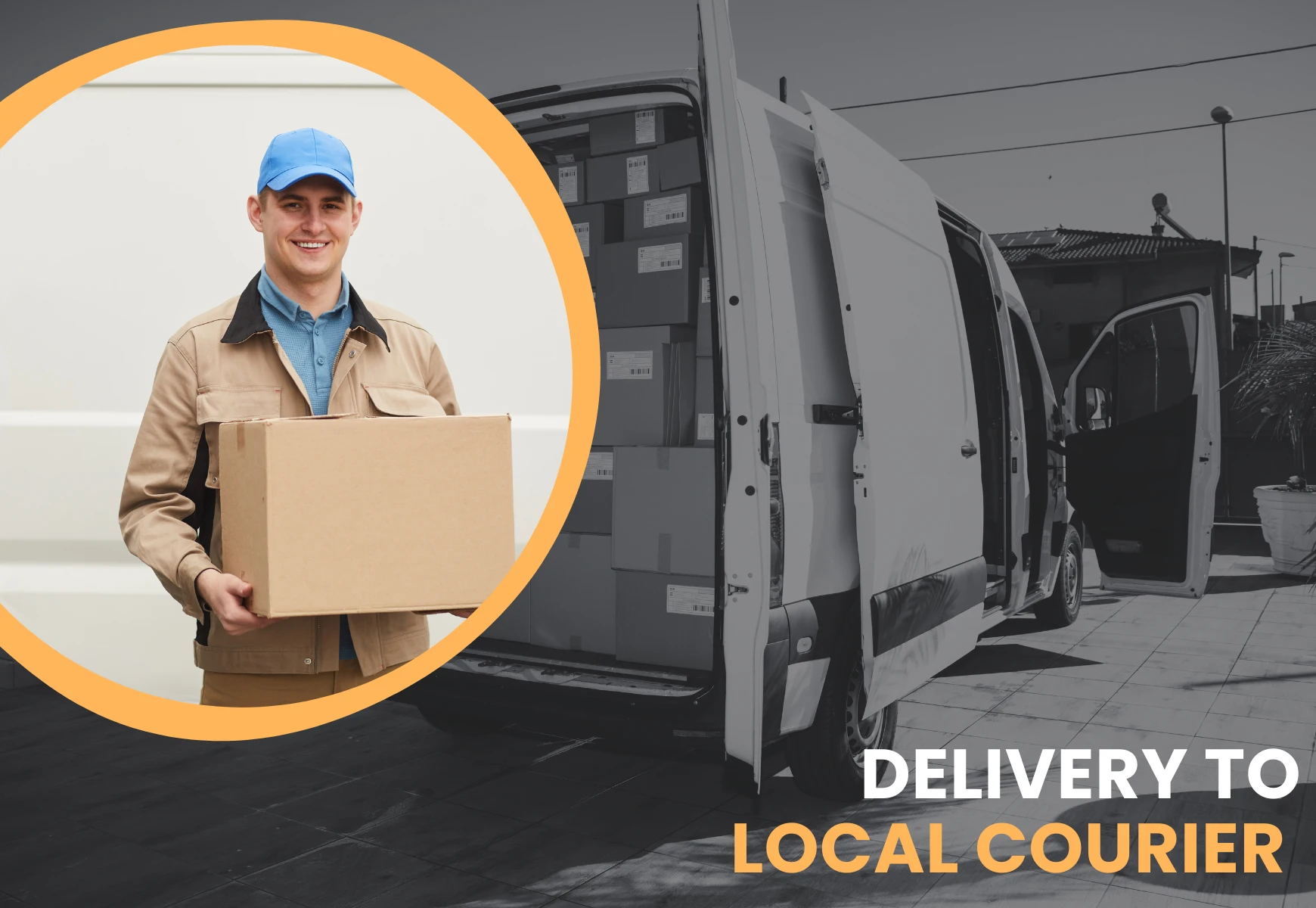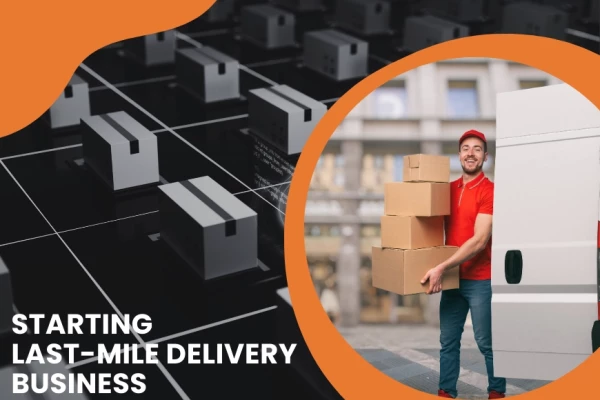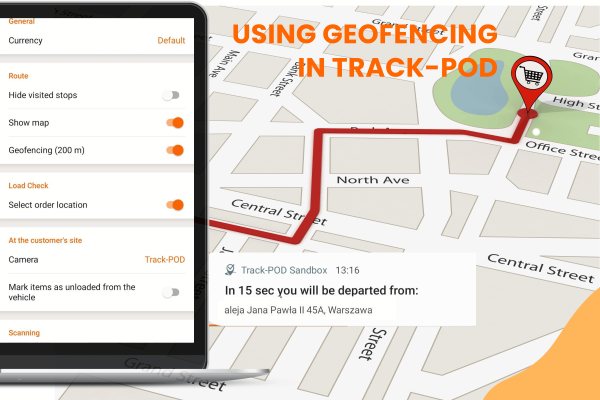Delivery to Local Courier: What, Why, and How? [Q&A]

by
Alisa Cvilij
June 06, 2024
Delivery services come in all shapes and sizes. From major carriers to small delivery operations, there are many types of shipping, and many terms carriers use to describe their delivery services.
- Meanwhile, what is most important for customers is getting their packages on time—whether by an outsourced carrier, an in-house delivery operation, or both. When it comes to last-mile logistics, the service matters more than the provider.
This question-and-answer blog article explores the most frequently asked questions about local courier delivery and provides extensive answers.
Table of content
What is a local courier?
What does delivery to local courier mean?
What is local courier facility?
Why use local couriers?
How to start a local courier business?
What is a local courier?
A local courier is someone who covers the last leg of the journey from the manufacturer to the customer at home.
This is a company that oversees last mile delivery, i.e., the final stage of order fulfillment.
Depending on what the manufacturer's supply chain looks like, whether or not distributors are involved, and how many carriers are needed to bring the package to the customer's doorstep, a local courier can be a local branch of an international carrier or an independent local delivery partner.
Either way, a local courier is someone who knows the delivery service area well and is able to bring the package to the customer's doorstep.
If you are planning to start last mile delivery business, read this step-by-step guide.

What does delivery to local courier mean?
Delivery to a local courier means the package arrives at a local branch of the courier service provider. It also means that an individual courier picked the package up from the depot.
A delivery route is usually planned at this stage, with multiple drops (customer addresses) included. Customers usually receive their SMS or email delivery notifications specifying the date and time of delivery.
Delivery to a local courier can also mean that the packages have been labeled, scanned, and loaded onto the truck according to the vehicle loading plan. Local courier services scan packages to prevent delivery mistakes.

What is local courier facility?
A local courier facility is a delivery starting point in last mile logistics.
Local facilities are hubs from which courier drivers start their routes. They can also function as warehouses or store locations in case a business does self-delivery.
Once the package arrives at the local courier facility, the customer can expect delivery within 24 hours or so, depending on the service area.
A local courier facility will also provide customers with live tracking information, an estimated time of arrival (ETA), courier contact information, and order details. Local facilities are the last to handle shipments before they reach customers.
This transparency in logistics relies heavily on a well-designed app development tech stack, ensuring seamless integration of tracking systems, customer databases, and order processing. Local facilities, being the final touchpoint before shipments reach customers, play a crucial role in the efficiency and accuracy of the entire delivery process.
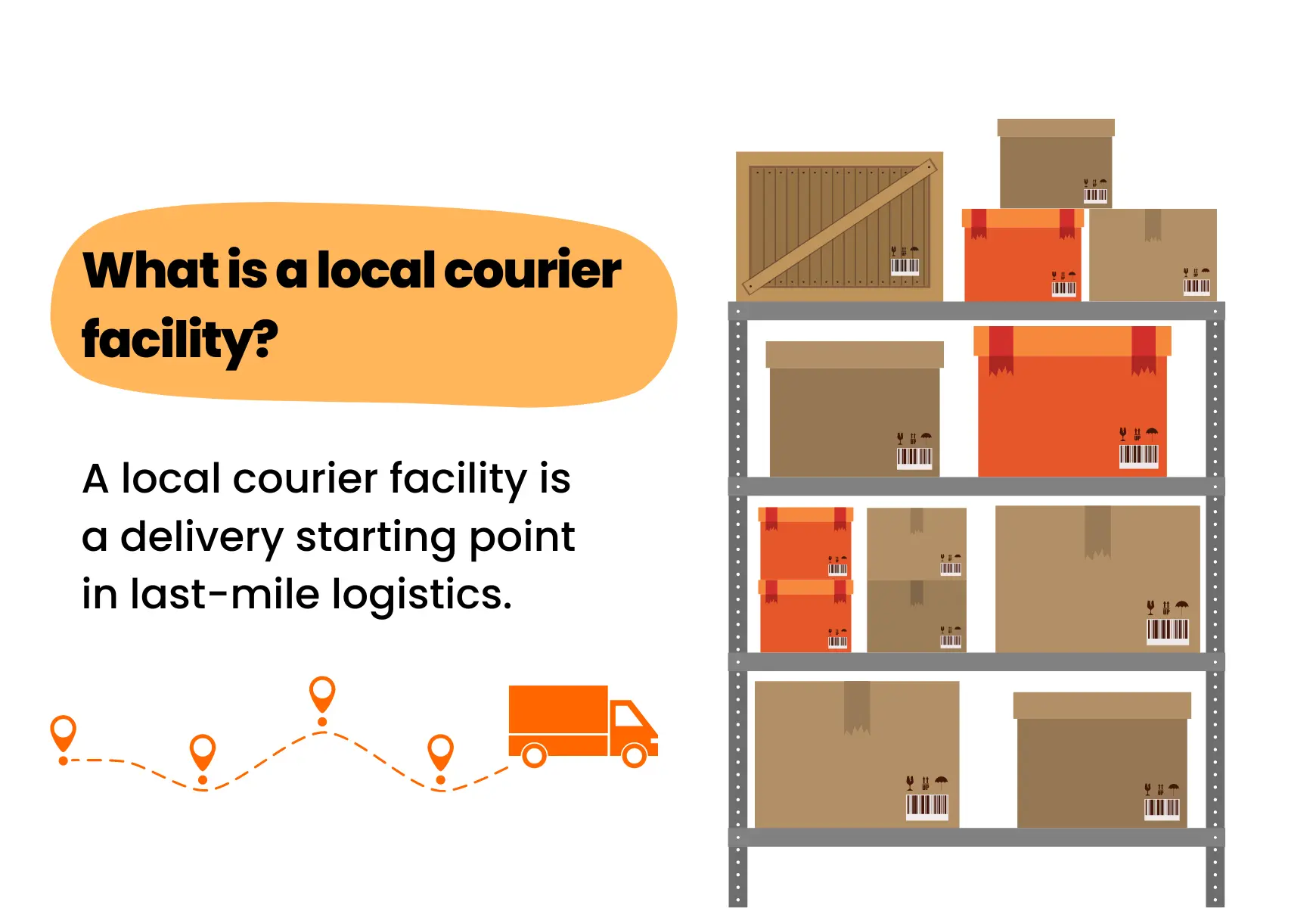
Why use local couriers?
Local courier businesses, having smaller fleets and employing fewer people than major carriers, can charge more for their services than nationwide transportation companies. However, working with local courier companies comes with its own advantages.

Local knowledge
Not even the most advanced route optimization algorithm knows all restrictions and specifics that apply to local areas and addresses.
While an automatic route planner will arrange hundreds of drops into delivery routes - something that would otherwise take hours, if not days, of manual work - the software doesn't have the kind of knowledge local couriers have.
The best combination for fast and precise deliveries is route planning software and local knowledge of the area. When orders are planned utilizing technology and handled by local couriers, you get the best automation and human planning.
Even big carriers partner with local couriers to fulfill orders in areas without their own branches.
Tracking & visibility
Supply chain visibility is a big issue for manufacturers and distributors. Dealing with customer calls and requests for updated ETAs and courier whereabouts is the necessary evil of providing an online shopping experience—and local couriers can eliminate this completely.
In local areas, large carriers will often give an estimated date of delivery and not much else. Local couriers, meanwhile, provide real-time tracking and the option to contact the courier handling the package.
This is because local couriers have fewer resources to handle customer calls. Instead, they make use of last mile delivery software that powers notifications, updates, and courier live tracking. These are all parts of customer self-service.
Special courier services enhance tracking and visibility. Carriers equipped to handle high-value or time-sensitive loads give clients peace of mind with on-the-fly updates.
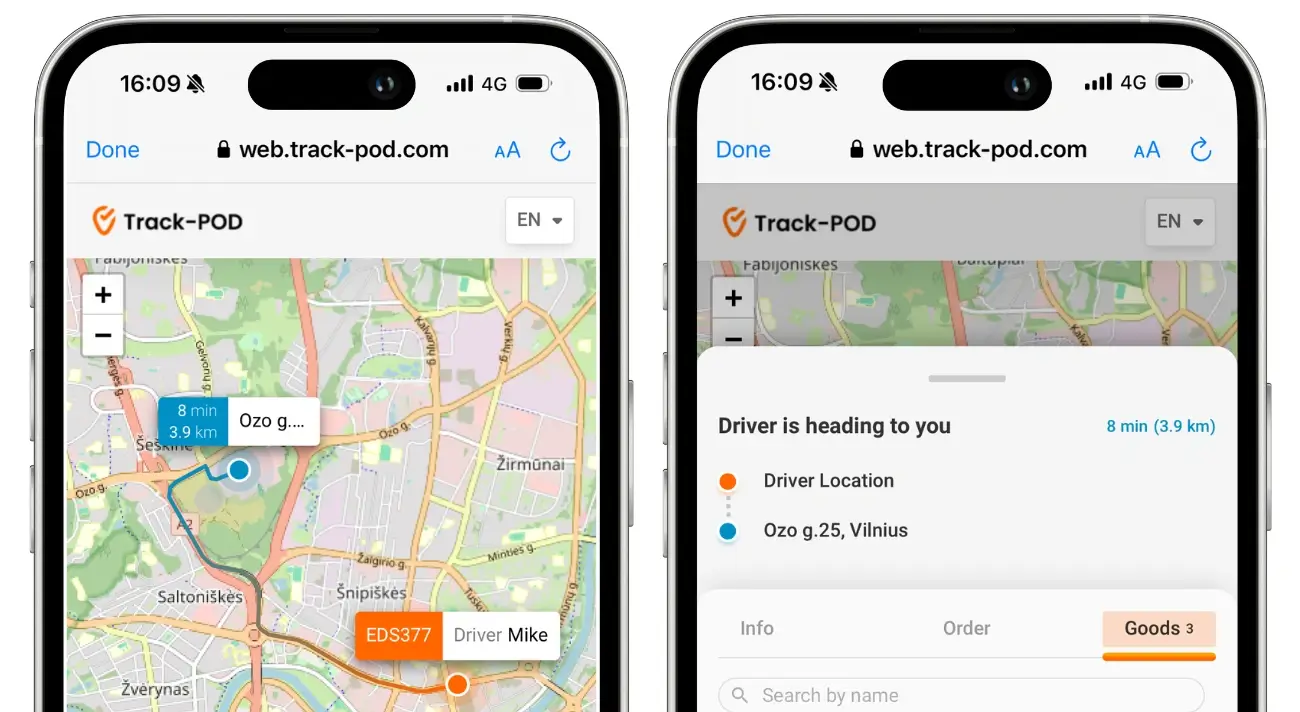
Above is an example of live tracking at Track-POD. If you are providing local delivery services, try Track-POD delivery management software for 7 days for free, which involves:
- Route Optimization
- Live Tracking
- Electronic Proof of Delivery
- Driver App
- Order Management System
Sustainability
Local distribution is the future of supply chains.
Customers are becoming increasingly conscious of their shopping choices. Companies that can offer sustainable shipping, i.e., shipping that causes fewer emissions and doesn't involve paper, will thrive in the long term.
Local courier facilities are more likely to use sustainable fleets like electronic vehicles or cargo bikes because they need to stand out from the competition; and also because they care about their local areas. If you are curious about green logistics and strategies that can be used to ensure greener transportation, check this blog.
Electronic Proof of Delivery, also known as paperless delivery confirmation, is something local couriers will use to cut costs and be more sustainable.

How to start a local courier business?
What does it take to start a local courier business and be of service to your community?
1. First and foremost, you need local staff, i.e., drivers and dispatchers, who will work with you to deliver orders to customers' doorsteps.
2. You know that route planning software can arrange unlimited drops into delivery routes, which means your dispatchers won't have to spend hours a day building routes manually.
With features like priorities, load planning, and time slots, you can nail route planning and keep your customer service standards high.
All those features can be found at Track-POD delivery management software.
3. Meanwhile, drivers must bring the right packages to the customers following their assigned routes. They can use paperless delivery driver apps with features like barcode scanning, navigation, order management, and photo Proof of Delivery.
4. It can be difficult to ensure a steady workload for drivers as a local courier service, especially as a startup. What you can do, however, is work with contract drivers and give them easy tools like a mobile driver app that they can quickly download and get started on any smartphone.
To keep customers at the center of the delivery process and eliminate calls on the status of delivery, make sure you have software that automates customer notifications and live tracking.
This is useful at every stage of order fulfillment, especially before and after the service rendered.
Naturally, this is a very rough outline, but the basics of starting a local courier business are:
- Finding the people who will make it happen.
- Giving them easy-to-use tools to succeed.
Wrapping up
What does local courier facility mean? This means that the order will be delivered soon by people who know the area well and are keen to provide the best delivery service they can.
I hope this Q&A gives you an understanding of what local couriers do and how they work to deliver packages to customers on time and in full.
Try the Track-POD delivery management system, which will streamline your local deliveries!
About The Author
Alisa Cvilij
Content Marketer at Track-POD. Passionate about building meaningful and helpful content for the readers.

